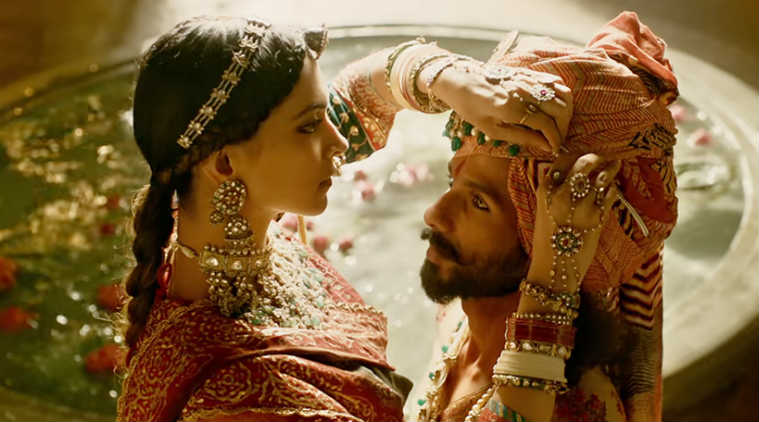Padmavat after name changes and several cuts is finally ready for release but the path has not been easy.
The Supreme Court recently ordered in favour of the Padmavat makers and allowed it to screen the film in the four states that had banned it (Madhya Pradesh, Haryana, Rajasthan and Gujarat). The film is now slated to release on January 25. The film had faced extensive opposition from vigilante groups like Karni Sena and protests and riots had broken out many times. Finally, the censor board had appointed a panel of historians to look into the claim that the film contains historical inaccuracies.
The controversies surrounding the film brought to fore important debates regarding freedom of speech and expression.
The controversy around Padmavat has not been alone. Last year also saw threats on films featuring Pakistani actors leading to one of India’s big director make a ‘gun on your head’ type apology video and making another Indian actor pay money disguised as a donation to a local political party to ensure that there was no trouble when his film released. Former CBFC chief ended his term with a record number of bans on films. He famously brought out a list of words that could not be used in films. He axed scenes if the kissing scenes were too long (Spectre) or if they indicated female sexual desires (Lipstick Under My Burkha). Nude and Sexy Durga were omitted from International Film Festival in Goa because of controversial names and possibly content. Censor board later suggested a name change.
This censorship has also pervaded literature. Wendy Doniger’s book The Hindus: An Alternative History was banned for its ‘controversial’ content. The author condemned violent actions of individuals against those whose words or actions do not agree with those of the ‘self-appointed censors’ and encouraged journalists and writers to fight for freedom from repression and censorship. More recently, an injunction was issued against the book on self-styled yoga guru Baba Ramdev, Godman to Tycoon: The Untold Story of Baba Ramdev. Ramdev enjoys a large following and political patronage, especially from the right wing.
A country that has witnessed articulation of offence ranging from defamation suits on writers to boycotts of movies and from vandalism of property to outright murders of journalists is a country easily outraged. Often the extremist elements, with little tolerance for an alternate viewpoint, are indulged by the state and political factions. A culture of bans and censorship is born and if extended beyond a limit can lead to a surveillance state. In the short term it can give rise to majoritarian governments, and in the long term, it can erode the plural and multicultural fabric of the nation.
It must be noted that freedom to get offended and object coexists with the freedom to offend.
Dissenting opinions create a lively discourse. How such dissenting views play out in a society can indicate whether it’s a plural democracy or an authoritarian state. There are numerous platforms available in the country to register dissent. Change.org has run successful petitions to get shows celebrating child marriage banned, and at the moment some of the petitions are asking shut down of accounts that threaten women, asking hospitals to declare caesarean deliveries, scrapping 377, implementation of disabled friendly measures in railways, and keeping real estate out of Aravalli zone.
Moreover social media and civil society have given a dynamic space to dissent peacefully, an option many Indians have successfully used. Matters of more serious intent can be debated in courts. However, freedom to get offended, sometimes very easily, has often ended up curbing the right of expression of other groups, especially when the offended group is in power or threatens with violence. It is a tightrope that the state and society have to walk.
Some basics can be observed – zero tolerance for violence, threat or intimidation, refusal of courts and state to indulge in every matter where sentiments of sections are hurt, a mechanism to ensure creative freedom for writers, artists, filmmakers etc. and most importantly inculcating in social intelligence to entertain and tolerate opposing views. The last is a long-term ideal but can go a long way, as English writer Evelyn Beatrice Hall once mused, “I disapprove of what you say, but I will defend to the death your right to say it.”


















